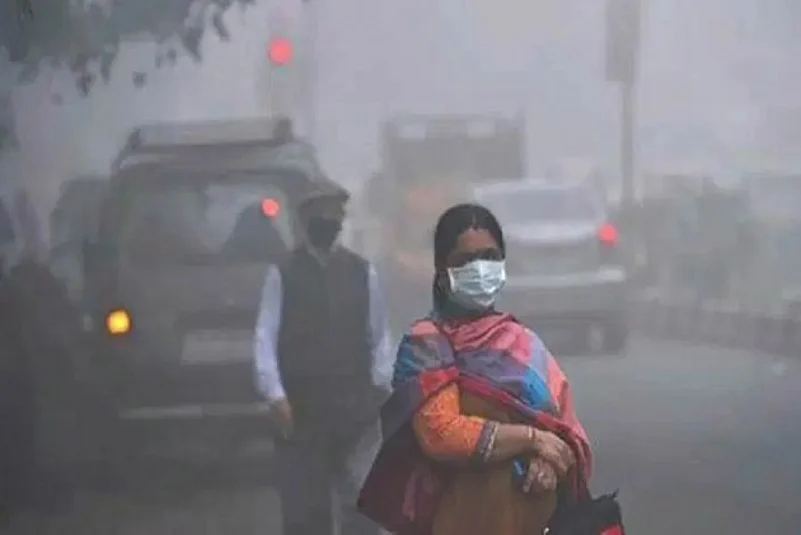Pollution levels in Delhi and neighbouring cities dropped marginally on Saturday with a slight increase in the wind speed, a day after the region recorded its worst air quality forcing authorities to shut schools, ban all construction activities and declare a public health emergency.
The city's overall air quality index (AQI) stood at 407 at 10 am. It was 484 at 4 pm on Friday, according to official data.
In the National Capital Region (NCR), Ghaziabad and Greater Noida recorded AQIs of 459 and 452, respectively, at 10 am on Saturday. On Friday, they had an AQI of 496 at 4 pm, the Central Pollution Control Board (CPCB) said.
The levels of PM2.5 -- tiny particulate matter of less than 2.5 microns in diameter that can enter the lungs and even the bloodstream, were 269 micrograms per cubic meter at 10 am, more than four times the safe limit of 60 micrograms per cubic meter. The PM10 level was at 436, showed official data.
Weather experts said there is a significant improvement in wind speed and it will increase gradually. Winds gusting up to 20-25 kilometers per hour are likely in the region from Sunday to Tuesday, they said.
Scattered rainfall in Punjab, Haryana, Rajasthan and Delhi is likely on November 7 and 8 under the influence of Cyclone Maha and a fresh western disturbance, the weather office said.
This rainfall, however light, will be significant in terms of reducing the effect of stubble burning, and will wash away pollutants, they said.
On Friday, the Supreme Court-mandated Environment Pollution (Prevention and Control) Authority declared the public health emergency, following which the Delhi government decided to shut all schools.
The EPCA also banned construction activities in Delhi-NCR till November 5.
Chief Minister Arvind Kejriwal termed Delhi a "gas chamber" and blamed stubble burning in neighbouring Haryana and nearby Punjab for the apocalyptic haze shrouding the city.
The share of stubble burning in Delhi's pollution stood at 46 per cent on Friday, the highest so far, according to the Ministry of Earth Sciences' air quality monitor, SAFAR.
The AQI entered the 'severe plus' or 'emergency' category late Thursday night in Delhi, the first time since January this year.
An AQI between 0-50 is considered 'good', 51-100 'satisfactory', 101-200 'moderate', 201-300 'poor', 301-400 'very poor' and 401-500 'severe'. Above 500 falls in the 'severe plus' category.


























